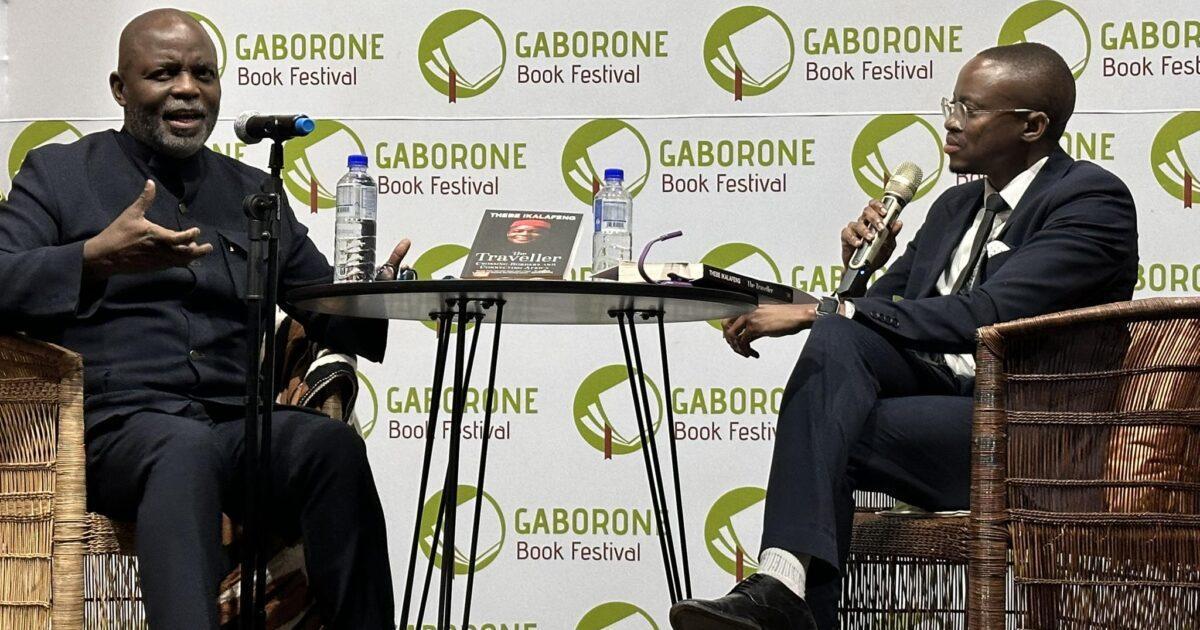Africa-Press – Botswana. At the Gaborone Book Festival Book Night, Africa’s leading branding authority, Thebe Ikalafeng, shared lessons from his travels across African countries and the world, reminding us that the most powerful journey is back to ourselves.
For Thebe Ikalafeng, the journey chronicled in his best-selling book, The Traveller: Crossing Borders and Connecting Africa, is not simply one of air miles and passport stamps.
It is a journey of identity and of reclaiming what it means to be African in a world that too often measures excellence by Western standards.
Once draped in corporate suits, Ikalafeng has shed the uniform of boardrooms for attire rooted in African heritage. “I personally stopped wearing Western suits after I left corporate,” he told the audience recently at the Gaborone Book Festival Book Night at the National Museum and Art Gallery in Gaborone.
Values over vanity
“I realised I had travelled more to Western countries than African ones. That had to change. I started internally – by embracing my own culture – and worked to bring others along.”
Ikalafeng’s branding career spans commercial giants, governments, and institutions. Spanning such wide spectrum, he has learned that not all clients align with his values.
“Political branding is the most stressful,” he said. “Politicians often tell compelling stories but disappoint in delivery. I decided I wouldn’t work with them any more. I have never mortgaged my values.”
Local stories, global reach
This clarity of purpose, he added, is his barometer for decision-making: “You must know who you are and why you are there. I don’t do things to please.”
Whether rebranding the University of Botswana or shaping a new motto for Free State University, Ikalafeng insists that impactful branding starts with local heroes and local meaning.
“When we launched the Free State brand, it worked because people had invested in it. UB did not take off the same way,” he reflected, underlining the importance of community buy-in.
In an age of artificial intelligence, Ikalafeng believes that Africa’s strength lies in its traditions. “AI was supposed to help us but we must be grounded in what made us,” he said.
Rooted in the village
He revisited and referenced the book “The Villager” by Feyi Olubodun, as a grounding force. “It’s not about where we are headed but where we come from,” he said. “Africans are communal but not always community-oriented. We must institutionalise our culture and globalise it. The world believes Africa is great, except Africans.”
Ikalafeng’s travels to every African nation were not about ticking off a list but about engaging with each country on its own terms. “Just go,” he urged. “Deal with the country as it presents itself.”
His story is one of porous and impermeable borders, of branding and storytelling, and of the unshakable belief that Africa’s greatness lies in its people, values and culture.
For More News And Analysis About Botswana Follow Africa-Press






